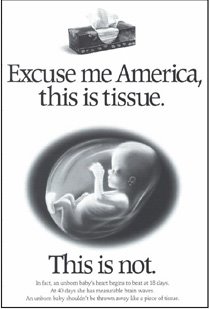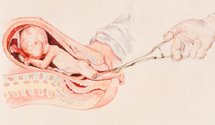Children Treated as Property
 I realize the posting is more than a week old but over at StandToReason Blog, Melinda has generated a little bit of useful discussion about blastocysts, i.e. embryos less than two weeks old from conception.
I realize the posting is more than a week old but over at StandToReason Blog, Melinda has generated a little bit of useful discussion about blastocysts, i.e. embryos less than two weeks old from conception. Here’s what she had to say. Also take a minute or two to look at the interesting comments to her posting.
**********
Children Treated as Property
Yes, I'm referring to blastocysts, embryos less than two weeks old from conception, as children. I'm not begging the question asserting them to be children because we're argued extensively for their humanity before. So I'm starting from that point. Let's "trot out the toddler," as our friend Scott Klusendorf has taught us.
Is a two-year-old child the property of her parents, such that the parent can hand her over for experimentation for the "greater good"? Most sane people will answer immediately and intuitively "No!"
Then why, if we simply move back in time two years and almost nine months, that same being can be treated as property by its parents?
A new poll of parents with unused frozen embryos shows that a majority are willing to donate their embryos for scientific experimentation, specifically to develop new stem cell lines. One parents put a nice moral veneer on this decision as doing "the greater good" of developing cures for ailing people. As a proponent of this moral theory given moral dilemmas, let me clarify what is accept under "the greater good." There's no moral dilemma involved in frozen embryos. You're not being forced to choose between two unavoidable, conflicting options. Someone might see the dilemma as keeping them frozen or donating them. There's a third alternative: Allow them to be carried and hopefully born. Adopt them out if necessary. Better yet, let's use some wisdom and not create them in the first place without the sole intention of giving them the opportunity to be live. The "greater good" doesn't apply because there's no moral dilemma.
Would this same mom offer up the children born from that same batch of embryos for "the greater good"? Of course not. Her children are not her property to do with as she wishes.
Unfortunately, the head of a bioethics institute says that "These embryos have very special and moral meaning for the people who create them." Umm, they don't have meaning just "for" the parents. That's relativism. These beings have objective, intrinsic value and meaning in virtue of what they are: human beings. When she places the value in subjective terms, the people who hold that value then have the power to devalue it and treat them like property. Her moral formulation puts all the moral meaning to the parents. The parents may value them, but that's not why they have value. She continues, "...we need to know their preferences." See, the moral value and decision making is centered in their personal preferences.
Another parent believes that it's better for her frozen embryos to be used for the good of others rather than terminating them. But terminating them is exactly what will happen to them as their parts are dissembled for stem cells. It doesn't make it morally acceptable because they'll be used for the good of others. Again, she would never use that justification for her toddler. Indeed, she would justifiably recoil at the thought.
Even one woman who recognizes that she's created human life uses the relativistic language: "For me, it would be destroying my children," she says. "That's a human life that we created." Even if the embryos is valued by the parent as a human life, the embryos aren't value in virtue of the parent's value.
The entire idea of donating embryos for experimentation originates with the assumption that the value is relative to the parents and they are property. We don't treat toddlers that way; we shouldn't treat children at their earliest stage of development that way.
Labels: ESCR, moral relativism


























0 Comments:
Post a Comment
<< Home